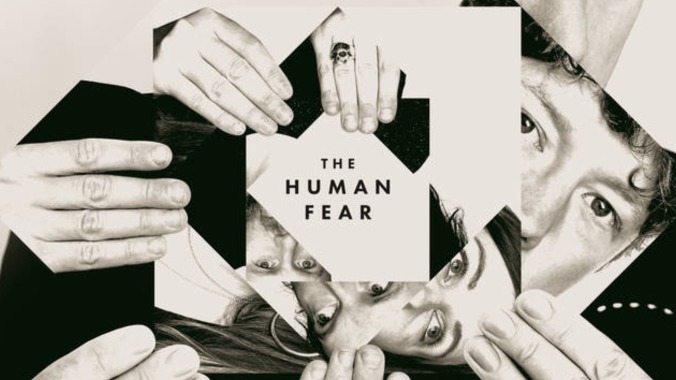Franz Ferdinand Push Boundaries on The Human Fear
The Scottish band’s first album since 2018 expands their sound in a way that suits them.

Not to get all philosophical about it, but Franz Ferdinand are saddled with the weight of history on The Human Fear, the band’s latest album. Their own history, to be clear—that wasn’t a set-up for some weak World War I joke. Considered on its own, The Human Fear, Franz Ferdinand’s first LP since 2018, is a well-constructed, sometimes playful album about confronting, well, human fears. Alas, there’s always context.
In this case, it’s that Franz Ferdinand’s 2004 self-titled debut vaulted them to the forefront of a wave of UK post-punk revival bands, thanks to sharp, catchy songs and sly humor. That’s more or less the kind of music that Alex Kapranos and co. continue to make, just without retreading all the same ground as 20 years ago. Yet the long shadow of expectation has been tricky to escape: Reviewers have mused about the band’s “obsolescence,” and seemed generally disappointed that Franz Ferdinand haven’t found a way to update “Take Me Out” for the Olivia Rodrigo generation.
Truth be told, trying to pander to ever-shifting musical trends would be far more suspect than the band tuning them out and following its own creative instincts, which is what Franz Ferdinand do on The Human Fear. The core elements of their sound haven’t changed: dance-y backbeats, serrated guitar lines and Kapranos’ distinctive, slightly louche voice. What’s different here is what the musicians do with them. For starters, the energy is less amphetamine-frenetic on these 11 songs, which are sleek but not quite so sweaty as some of the band’s dashes through jittery riffs and relentless drums on earlier efforts.
Keyboard textures are more prominent here than on past albums, which is surely a result of adding Julian Corrie to the band in 2017 (Franz Ferdinand also now include drummer Audrey Tait, who replaced original member Paul Thompson following his departure in 2021). Those are Corrie’s parts floating through the churn of guitars, bass and drums on “Everydaydreamer,” and he contributed grinding synth parts to “Hooked” and bold, rhythmic piano playing to “Night or Day,” which also features a glossy keyboard break midway through. Meanwhile, the taut guitars thrumming through opener “Audacious” and the abrading riff underpinning “The Birds” would have fit easily on any previous Franz Ferdinand LP.
-

-

-

-

-

-

-

-

-

-

-

-

-

-

-

-

-

-

-

-

-

-

-

-

-

-

-

-

-

-

-

-

-

-

-

-

-

-

-

-








































